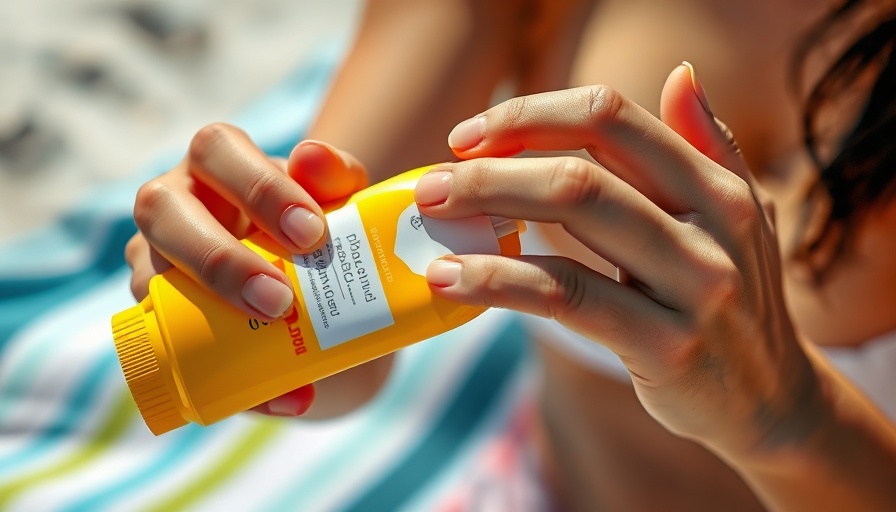
A Revolutionary Step Forward in Sunscreen
For over two decades, sunscreen users in the U.S. have awaited the introduction of new filters amid growing concerns about skin protection and the efficacy of current options. Finally, the FDA is evaluating the approval of a new sunscreen filter, bemotrizinol, also known as BEMT or PARSOL Shield. Expected to receive the green light by March 2026, this ingredient promises to enhance sun safety and tackle the innovation gap between U.S. sunscreens and their European counterparts.
Understanding Bemotrizinol: A Game Changer for Sunscreen
BEMT has been a staple in many international sunscreens for over 20 years, celebrated for its photostability and broad-spectrum protection. Unlike avobenzone, the sole approved organic filter currently allowed in the U.S., bemotrizinol offers formulators an alternative to enhance both product performance and aesthetics. As one expert highlights, the new filter could lead to lighter, less greasy formulations—ideal for consumers seeking comfort alongside effective skin protection.
How Does BEMT Stack Up Against Other Ingredients?
The inclusion of bemotrizinol in U.S. formulations might also pave the way for less pasty products that blend seamlessly on various skin tones. While avobenzone combined with other UV filters can provide satisfactory protection, BEMT offers a significant leap forward in terms of formulation flexibility, allowing brands to innovate. This could positively impact consumer choices and broaden the appeal of sunscreens on the market, especially as formulations become more tailored to individual preferences.
The Importance of Innovation in Sun Care
As awareness around sun safety grows, the limited number of approved sunscreen ingredients underscores a critical challenge in the U.S. market. The fact that the U.S. permits only 16 active sunscreen filters, compared to around 30 in Europe, highlights the need for regulatory reform and innovative approaches to sun protection. Approval of BEMT is not just about adding another ingredient; it symbolizes a vital shift towards enhancing public health and safety by addressing long-standing gaps.
Consumer Trust: Safety and Efficacy at the Forefront
Consumer perception heavily influences buying decisions. If bemotrizinol receives GRAS (Generally Recognized as Safe) status, it could boost consumer confidence, reassuring them of its safety for everyday use. Experts believe that utilizing this advanced filter could drive premium brands to lead the adoption, backed by dermatological research that emphasizes safety and effectiveness—a critical consideration for health-conscious shoppers.
What Lies Ahead for the U.S. Sunscreen Market?
The anticipated introduction of bemotrizinol doesn't merely promise advanced formulations; it has the potential to alter consumer behaviors across the country. Early adopters, specifically prestige and dermatologist-recommended brands, will likely champion marketing campaigns highlighting the “next-generation” UV protection it offers. However, the economic aspects present challenges, as the costs associated with manufacturing BEMT may delay broader adoption among mass-market brands.
Final Thoughts and a Call to Action
In anticipation of the official approval, it is essential for consumers to stay informed about these advances in sunscreen technology and how they may impact their choices. Consumer awareness plays a pivotal role in shaping market trajectories and driving demand for safer, more effective products. As we await this new approval, consider what steps you can take to ensure you are protected this summer and beyond. Share your thoughts and experiences about sunscreen and sun safety in the comments, and take an active role in promoting safer beauty practices.
 Add Row
Add Row  Add
Add 




Write A Comment